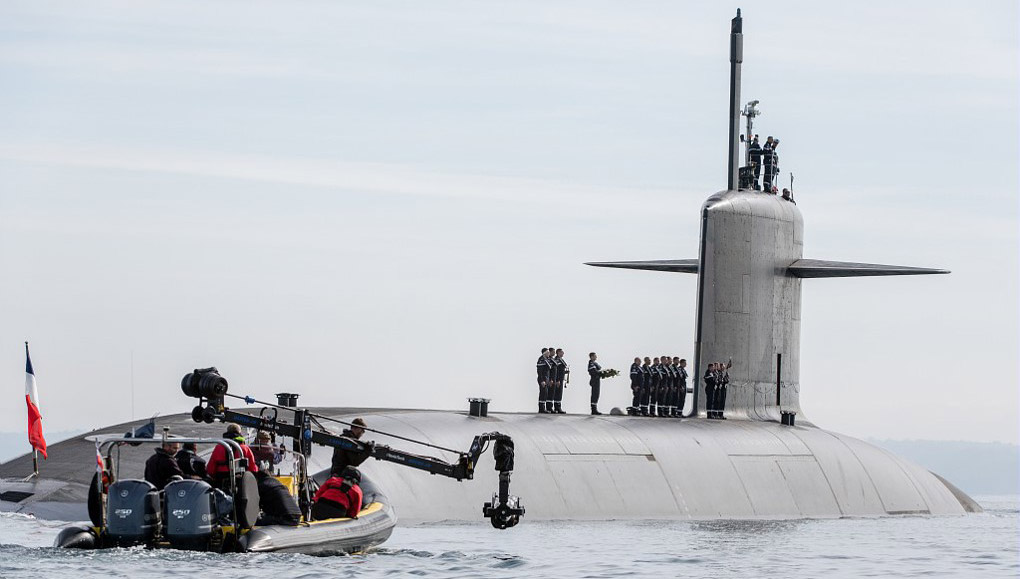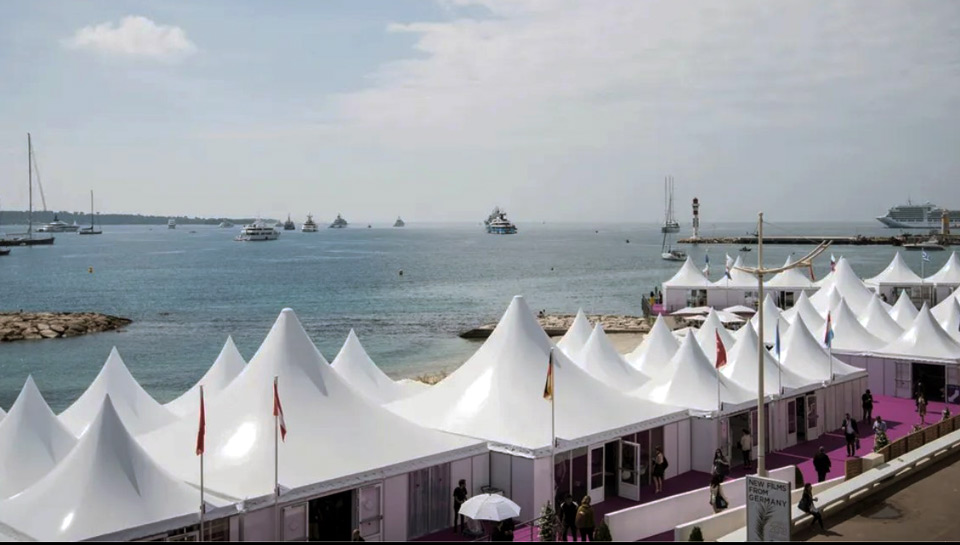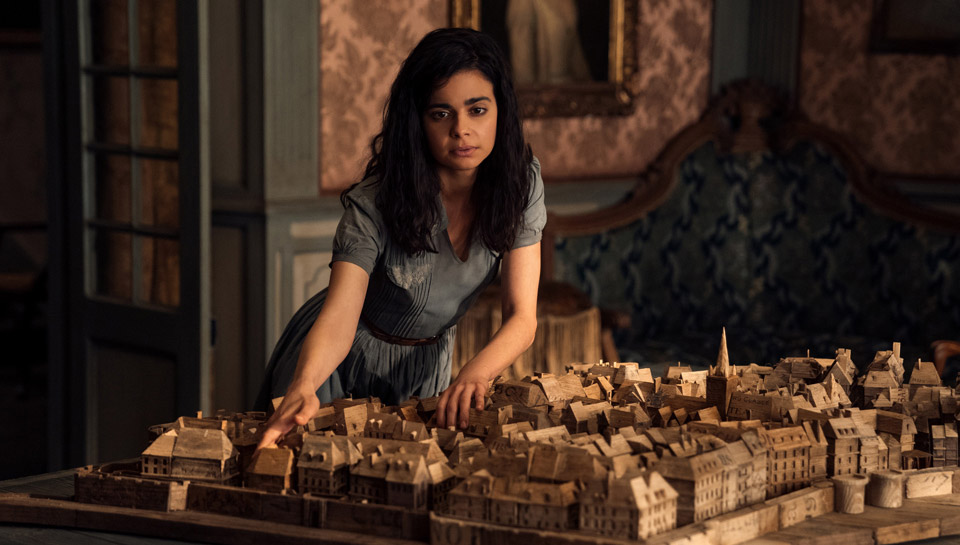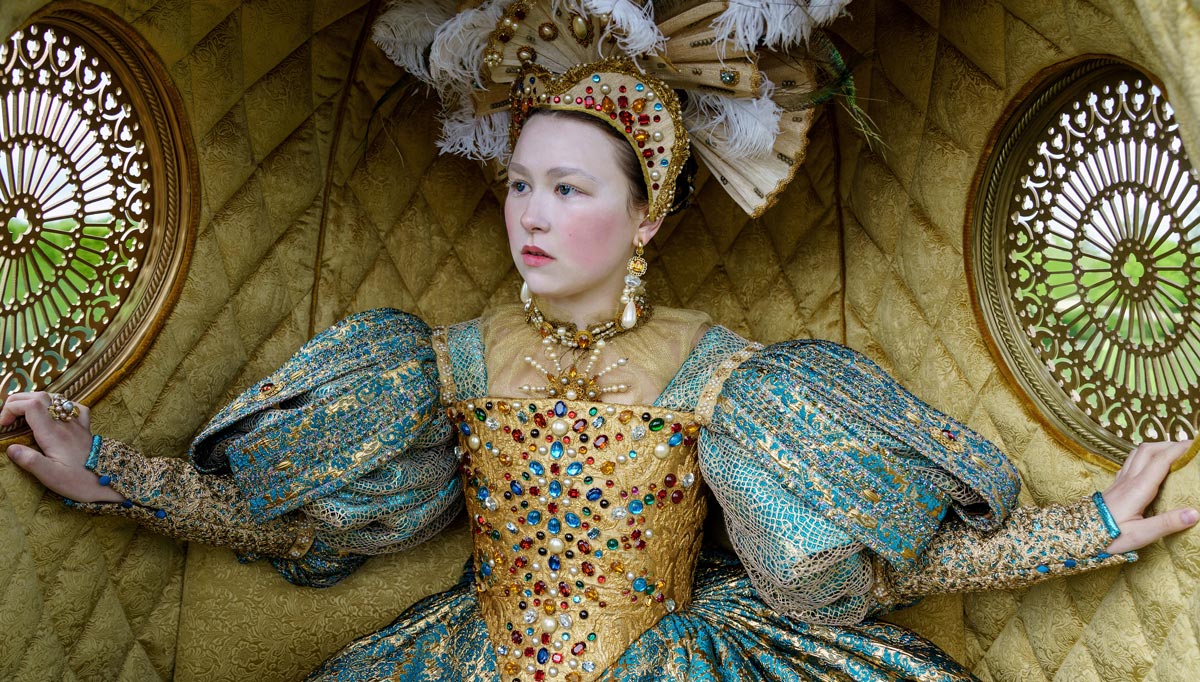In 2016, the Ministry created the Department of Cinema, which it extended to the audiovisual, video game and comic book industries in 2019 by renaming it Department of Cinema and Creative Industries (Mission Cinéma et Industries Créatives). The individual support they offer varies depending on the project and stage being overseen, and can range from writing films to promoting them.
The Department is mostly asked to find sets. "The Ministry of Defence is France’s largest landowner," recalls Mickaël Molinié, who is project manager. Thanks to this heritage, the Ministry of Defence is able to offer a wide variety of locations suitable for projects of very different sizes and types.
In recent years, the Brest naval base has been one of the most requested sets. It was used, for example, in the films Volontaire (2018) by Hélène Fillières and The Wolf’s Call (Le Chant du Loup - 2019) by Antonin Baudry. "We can also host films that have nothing to do with our field, which was the case of Mademoiselle de Joncquières (2018) by Emmanuel Mouret or OSS 117: From Africa With Love (2021) by Nicolas Bedos," says Eve-Lise Blanc-Deleuze.

Immersion in military life
Hosting film shoots is far from being the only support provided by the Ministry of Defence for film and audiovisual projects. "The range of support options is vast," says the head of the Department of Cinema and Creative Industries. "In addition to hosting film shoots and possible material support, we also offer significant non-material support. This ranges from advice on scriptwriting to promoting the finished project and training actors, enabling them to meet their real-life counterparts." This was what was done in preparation for the series Sentinelle (OCS). "For a week, the performers experienced military life. They were trained to handle weapons and even to raise a flag to make their performance more convincing." The scriptwriting, technical and history-related advice given by the various departments does not replace the artistic dimension."Producing is the producer's job," says Mickaël Molinié. "We never hold the writer-director's pen".
The Ministry of Defence’s considerable support for film and audiovisual creation is also a way of opening up to the general public, as Eve-Lise Blanc-Deleuze explains. "Our basic objective is to communicate and make citizens understand the role and mission of the military forces. It is not a question of airbrushing but of showing the difficulty and beauty of the job, the challenges and the courage of these men and women."

Among the upcoming projects supported by the Ministry of Defence is Robin Campillo's Les Blancs, which is set between 1960 and 1970 at a French Army airbase in Madagascar, but also, Mathieu Vadepied’s Father and Son (Tirailleurs), the film that opened the Un Certain Regard 2022 category at Cannes, starring Omar Sy as a Senegalese rifleman who tries to save his son during the battles of World War I. For this feature film, the director asked the Department of Cinema and Creative Industries to produce an exact replica of the flag used by the Senegalese regiment of the French colonial troops, preserved by the Ministry of Defence’s Archives (Service Historique de la Défense). As for series, Les Combattantes, a fictional series about French women behind the front during World War I, soon to be broadcast on TF1, benefited from lots of history-related advice from the Department of Cinema and Creative Industries, on anything from war medicine to setting up camps.
Contact the Department of Cinema and Creative Industries :
mission.cinema@dicod.fr





